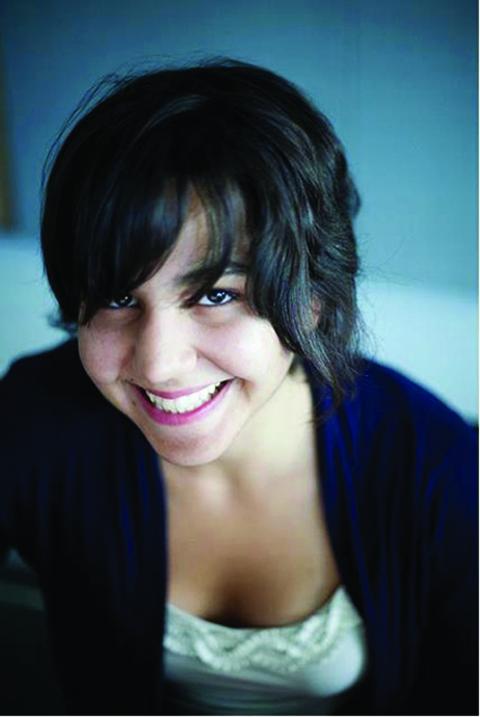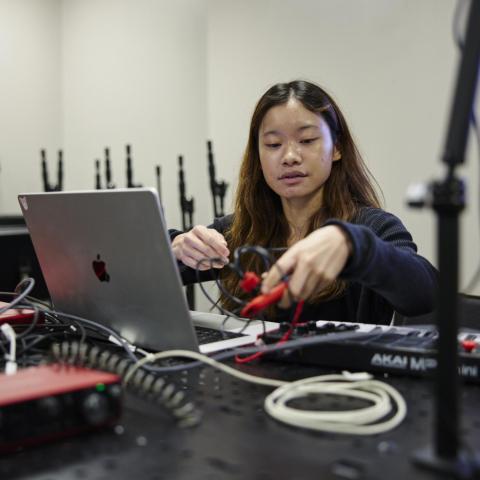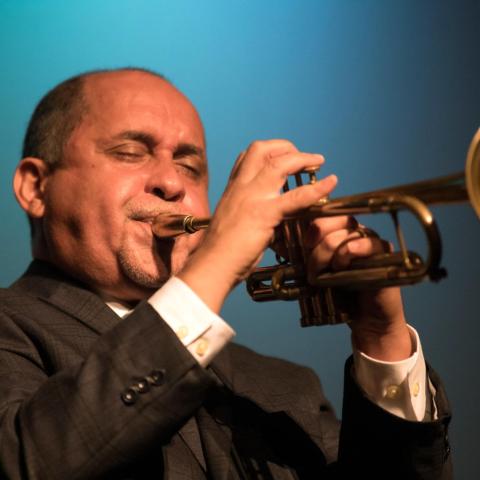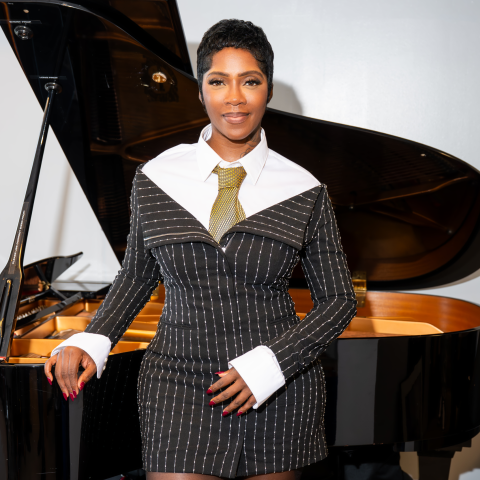Hammer and Chisel Work

Like a block of marble, I’ve been shaped with precision, passion, and the utmost patience. Like a hammer and a chisel, the philosophical theory of discomfort unearthed a vulnerable core deep inside me. But the discomfort of discovering that vulnerability has shaped my future.
Of course, the sculpting began much earlier, so it’s important to go back to the beginning. I was born in Iran and raised in Seattle. I have long been interested in playing the flute, reading philosophy, and learning about the music business. The third interest took shape when I was a high-school student and read Fredric Dannen’s book Hit Men. I would often contemplate the state of the major labels during the 1960s, smuggling songs onto the radio waves. I came to appreciate Hunter S. Thompson’s metaphor of show business as a “long plastic hallway where thieves and pimps run free, and good men die like dogs.”
I wanted to get into the music industry to serve the “good men.” But at the time, I did not know how to go about it. In August 2008, another event also shaped me. As a member of the Beijing Olympic Orchestra, I was a part of the first foreign national group allowed to enter Tiananmen Square. Through music, a political barrier—as seemingly impenetrable as marble—was broken. Instantly I understood Roger Waters’s song “Watching TV,” and how times had changed through the power of music.
For the next several months, I prepared for my education in the music business. After applying to various colleges, my course became clear when I was admitted to Berklee. Simultaneously, for the first time in 30 years, my native Iran experienced a major uprising. My father, Saeed Shahram, an award-winning film composer who has scored more than 45 feature films for the Iranian cinema industry, was in Tehran at the time.
My father backed the New Poetry movement led by the late Forough Farrokhzad, the first female Iranian poet to write critically about the norms in Iran. My father also wrote music for and performed on a 2001 Persian-jazz fusion album dedicated to Farrokhzad. At the time of the unrest, he had just completed the soundtrack for the television series Days of Dr. Gharib, which is based on the life of Iran’s pioneer of pediatrics. He also produced a controversial piece supporting a reformist opponent to Iranian President Mahmoud Ahmadinejad. I remember talking to my father and hearing how he been caught in tear gas released by anti-riot police and that he heard the gunshot that killed the martyr Neda Agha Soltani during a street rally. I thought about all the beautiful works my father had created and how he used his artistic voice to stand up for people. Copyright doesn’t exist in Iran, and there are no protections for the intellectual properties of artists. For more than 25 years, my father has had to fight for his royalties and he continues to fight for them today. This furthered my passion to fight for basic human rights and enter the entertainment industry.
The Theory of Discomfort
Before, I had only speculated on the harmony between human rights and the rights of artists, but during a first-semester philosophy class with Professor George Eastman, the connection became clearer. He explained that philosophy answers three questions:
- What is real?
- What is good?
- What is knowledge?
I concluded that what is real is what is comfortable to us, what is good is what brings discomfort, and gaining knowledge is the process of searching for what is uncomfortable. These thoughts arose as I thought about stories of banned musicians and censored music. While I had a passion for the music business, I simultaneously questioned it.
As I pursued a minor in philosophy, the theory of discomfort helped explain events in the global music industry. Often, I felt my passion being molded during jam sessions with friends from Puerto Rico, New York City, Long Beach, Kenya, and Trinidad, and in playing benefits for the Haitian earthquake and Japanese tsunami. In addition, the Occupy movement and protests in support of the Palestinian struggle led to discomforting conversations and beautiful music. In the spring of 2011, for example, President Roger Brown invited my father to speak to students about film scoring and to screen a documentary on the rights of female musicians. My father spoke of the injustice that he experiences on a daily basis. He still faces the prospect that any female solo voice will be removed from his film compositions, for example. My awareness of this repression helped me to feel part of Boston’s student community and fueled my passion for philosophy and the music business.
Embracing discomfort has enabled me to accept challenges, such as a 2012 trip to Jerusalem. Although carrying only a backpack and a flute, I patiently accepted that, as an Iranian, I would be permitted to enter Israel only after enduring a seven-hour interrogation. Political tensions between Iran and Israel were running high at the time. In the end, however, undergoing that uncomfortable experience enabled me to visit and perform at a Palestinian youth education center. With music, another seemingly impenetrable barrier had been broken.
My sculpture is coming closer to its final form. After completing my undergraduate studies at Berklee, I foresee working in the entertainment law field, at the crossroads of rights and freedom of expression. But I believe that we must expose the source of our passions to channel them most productively. My core intentions revolve around protecting musicians, and I cannot do so without speaking the language of my future clients.
After I returned to Boston following studies at Berklee Valencia, the finished sculpture in me was coming into view as a result of patient, precise chiseling over the prior four years. Peter Afrasiabi, an entertainment attorney I’d met while working at an intellectual property law firm in California, influenced me further. He led me to believe that musicians are the most vulnerable to victimization given copyright issues, and I should help them understand the topic.
I planned an event that brought three attorneys to Berklee for an intimate dialogue with Berklee students last March. It was a huge success, enlightening my fellow musicians and giving me career inspiration. My experiences with the theory of discomfort and the question of vulnerability, my father’s struggles, and other influences have chipped away at my ambiguous passions for art and politics. Since graduation I’ve begun working at a law firm in New York. Soon, I will pursue a master’s degree in global music business at Berklee Valencia and then attend law school. A few years ago, my future was just a marble block until I began chiseling.




